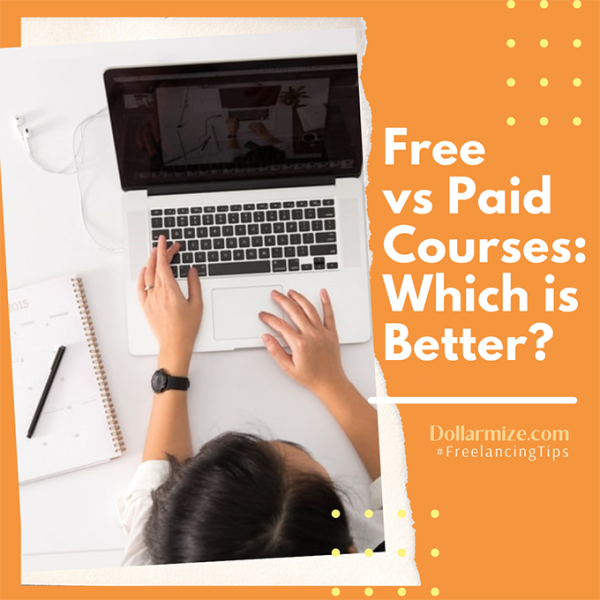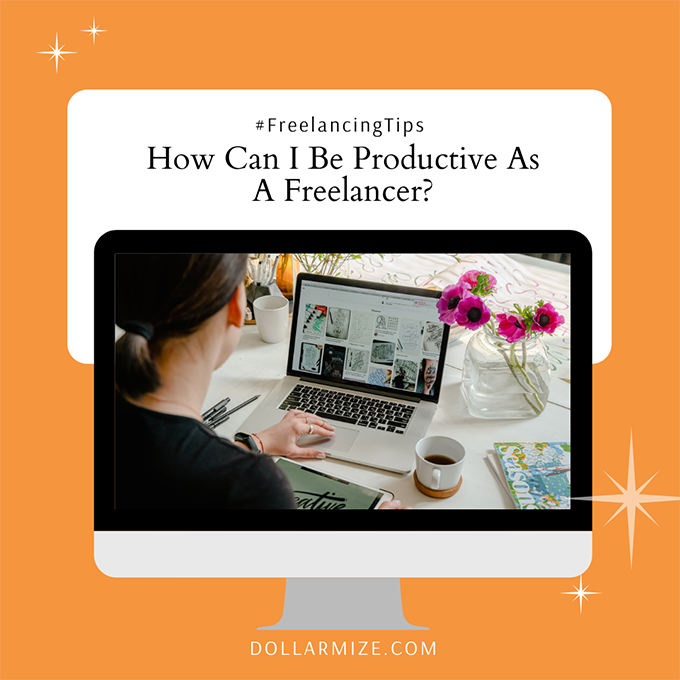Freelancing can be overwhelming for newbies who want to venture into this industry. There are so many things that need to be considered. Some of the questions you might ask were: What equipment should you use? How to find clients? And how to choose the best online courses for freelancers. Some people think their corporate experiences won’t be accredited for the new career they’re trying to build. But the good news is, you can always learn a new skill. It’s not too late to enroll in an online course and upskill. With preparation and the right mindset, it isn’t impossible to thrive as a freelancer.
Online Courses for Freelancers

Whatever skill you are trying to learn, there’s a great possibility that you will find an online course dedicated to teaching that skill. Many people are starting to publish their online courses, sharing their life and work experiences. You might even find your social media timeline bombarded with ads and posts promoting various courses. Having options is good, but too many confuse you when choosing the best online freelancer courses. Free and paid online courses are available for the skill you want to learn. And both of them have their pros and cons.
Free Online Courses
PROS
Depending on the skill you want to learn, you can find many free resources from Google, YouTube, and other platforms. You can take this at your own pace and based on your availability. There is not much pressure to finish the course because it’s free. No investment has been made, so there’s little commitment to finishing the course. Free online courses are also suitable for people who have not yet decided which skill to focus on. You can easily hop from one skill to another, explore your interests, and have the freedom to evaluate yourself until you have decided to pursue a specific skill that is right for you.
CONS
The only downside is that most free courses do not offer certification. So, if you are looking for a course that you can use to build up your portfolio, this may not be a good option for you. Also, most online courses for freelancers that are free of charge don’t provide the in-depth lessons that you need if you are already serious about committing to master a particular skill. It only provides an introduction and basic knowledge you can mainly research on Google. Some free courses are only used to promote a specific product or service and are mostly curated for marketing. Here are a few tips to better boost your productivity.
Paid Online Courses
PROS
Paid online courses for freelancers have some advantages that the free ones can’t give. One good advantage is having a mentor who will guide you on your journey. Famous instructors and experts of a particular skill curate most paid courses. They share their experiences, the lessons they’ve learned, and some valuable tips that helped them become successful in their career. These instructors’ credibility assures that students will learn from the best and that the lessons are accurate and valuable. You can be sure about the quality you will get. Another advantage is getting a course certification, which adds significant value to your portfolio. It plays a vital role in showing companies you are a serious learner.
In paid programs, you can be a part of a community where you can grow and learn. You can ask questions to your mentors and even to your peers. Purchasing a paid online course will also make you more committed and disciplined to finishing the course and applying what you’ve learned. This is because you know you have invested money in your learning and will try your best to get great results. The teachers also keep a check on the progress of the students and encourage them to be regular. You will also need to answer the quizzes and assignments given. Doing so helps students apply the skills they’ve learned from the course.
CONS
Some paid courses are too expensive, and it will be hard to afford them if you don’t have the budget. Especially if you are someone who is trying to learn a skill because you need to get a job, this might not be the best option for you yet. Also, some paid online courses for freelancers may not be of good quality, so it’s also quite a risk whether the course you buy is worth your money. So read the reviews beforehand whenever you decide to invest in a course. These disadvantages are not prominent, but they exist and should be considered.
Things to consider in choosing an online course

Focus On One Skill
There are a lot of lucrative skills to offer as a freelancer. But, you should not pursue all the trending skills; instead, stick with one skill you enjoy most.
Use your unique talent and hone your skills to be efficient in your chosen field. For instance, if you love art and enjoy designing things, you can hone your skills in graphic design.
I am also an aspiring freelancer who attests that online freelancing exists. But like you, I sometimes get confused about what skills to offer clients. Since I have more than ten years of experience in admin and back-office settings, I decided to use that experience to get my foot in the door. I started looking for clients that needed admin help.
Know Your Skill Level
I have also found that you should be able to categorize your efficiency and skill level as a freelancer. You should know if your skills are at a beginner, intermediate, or expert level.
Knowing your skill level will allow you to charge for your services appropriately. For instance, if you have basic knowledge of SEO, you can charge between $5 to $10 per hour. For virtual assistants, you can charge between $10 to $15 if you’re at the immediate level.
Be Willing to Invest
Becoming a freelancer is not an easy feat. The best course of action to start your goal of working from home is to make investments. You can invest your time – which means you will sacrifice other activities to learn new skills. Allot a few hours of your day to research and apply to job posts through different freelancing platforms.
You can also invest money and take freelancing courses. There are mentors out there who can teach you and guide you until you find your first client. I, too, have availed of free and paid courses from LinkedIn Learning, Lynda.com, and Udemy, so let me share my insights.
Free courses are a few clicks away, and you can access them anytime, anywhere. It works for those on a tight budget and those saving money to buy a laptop and pay for their internet connection. There is no timeframe for you to study, and you can learn at your own pace and convenience.
Many successful freelancers started with simple skills they acquired from watching video tutorials and reading blogs. However, the reality is that not everyone can get the same result. Your success depends on how well you are applying what you are learning. When taking free courses, it is expected to feel overwhelmed with information because you will learn different ways of doing things from different people.
On the other hand, paid courses are outlined based on the mentor’s expertise and what process worked for them. The topics are broken down into modules with well-defined and detailed content.
Just a reminder: choose your mentors wisely. The truth is some mentors are only after money. As I said, taking a paid course does not guarantee you will land a job effortlessly. There is tough competition, and you must be resilient to cope in the real world.
Takeaway
Whatever your choices are, use your best judgment. Your discernment is valuable; only you can choose between free or paid courses. After all, clients look at skills, but your attitude is what will determine your success.
Happy freelancing!
Angeline Licerio
Angeline Licerio is the blogger behind Dollarmize.com. After working online as a writer and SEO strategist, she decided to start this blog to give advise to people who would like to earn money online. She is also the founder of SEO Tutorials for FREE, a Facebook community that helps aspiring freelancers and SEO specialists to kickstart their work from home journey.




